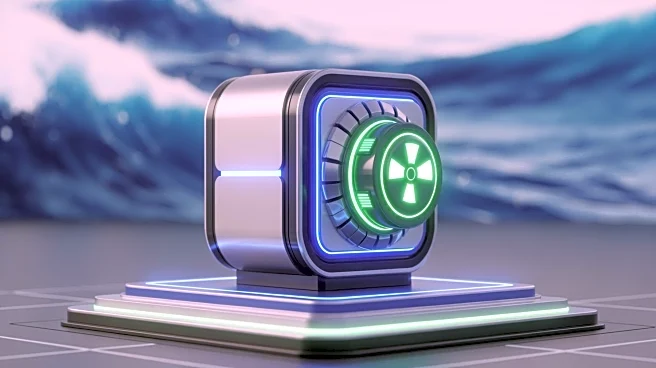What's Happening?
India is advancing its nuclear energy capabilities by developing small modular reactors (SMRs) for potential use in commercial shipping. The Bhabha Atomic Research Center is working on two SMR designs,
with capacities of 55 MWe and 200 MWe, named Bharat Small Modular Reactors. These reactors are intended for off-grid sites and energy-intensive industries, but the government is considering extending their deployment to merchant ships. The Indian Navy already uses nuclear propulsion in submarines, and the government is amending nuclear energy laws to include private sector involvement.
Why It's Important?
The development of SMRs for shipping could significantly impact the maritime industry by providing a cleaner alternative to traditional fossil fuels, aiding in the reduction of greenhouse gas emissions. This move aligns with global efforts to decarbonize shipping, a sector under pressure to reduce its environmental footprint. India's initiative could also bolster its domestic nuclear industry and foster international cooperation, as seen in renewed partnerships with the U.S. and France. The success of this technology depends on overcoming regulatory and commercial challenges.
What's Next?
India is working on amendments to its nuclear energy laws to facilitate private sector participation in SMR development. The International Maritime Organization's Marine Safety Committee has endorsed revisions to include new technologies like SMRs, indicating a supportive regulatory environment. As India progresses, it may influence other countries to adopt similar technologies, potentially leading to a global shift in maritime propulsion methods.
Beyond the Headlines
The integration of nuclear technology into commercial shipping raises ethical and safety concerns, particularly regarding nuclear waste management and the risk of accidents. Addressing these issues will be crucial for public acceptance and the long-term viability of nuclear-powered ships.









